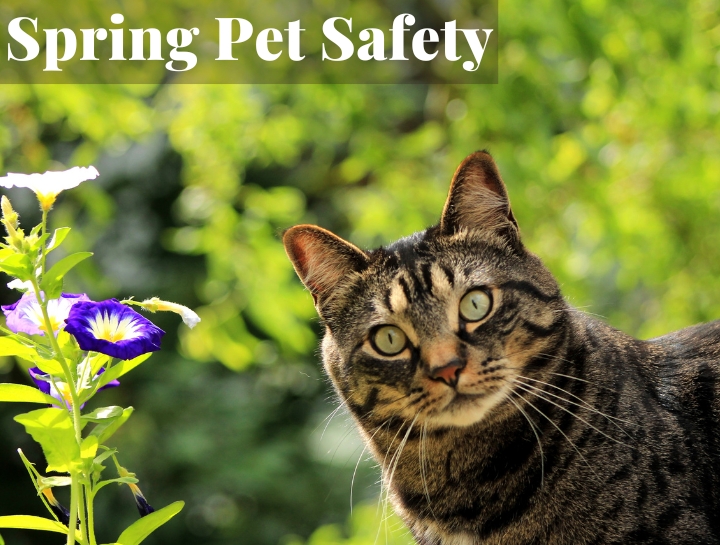Spring Safety Tips for Cats

As we gear up for the spring and summer months, it's important to not only consider the safety of our furry friends but also their health. May is Lyme Disease Prevention Month and Allergy and Asthma Awareness Month, making it the perfect time to take extra precautions.
Here are some tips to keep in mind:
Bugs and Critters
While Lyme disease is more common in dogs, there are several other tick-borne diseases that can cause serious health issues for humans and cats. Regularly check your cat for ticks and invest in tick-prevention medication. Additionally, avoid allowing your cat to go into tall grass or wooded areas where ticks are known to thrive.
Be sure to also watch out for those buzzing bees and wasps. If your playful kitty gets stung, scrape away the stinger (if you can find it!). Remember to keep insect repellents and sunscreens away from those cute little paws. Ingesting these products can lead to tummy troubles and neurological issues.
Plants
Keep an eye out for plants that can be toxic to your furry pals, like azaleas, rhododendrons, daffodils, tulips, and lilies. Fertilizers, insecticides, herbicides, and cleaners should be kept out of reach because they contain harsh chemicals that can be dangerous when absorbed through their paws or ingested. To find out if your plants are poisonous, please visit the ASPCA website.
Grooming
Time to get your fur babies looking fly! Brushing their coat regularly can prevent matted fur that can attract pesky critters, cause sores, and trap in heat.
Rising Temperatures
Make sure your cats stay cool and hydrated when they're outside. If possible, provide shade and air conditioning (because who doesn't love AC?). If you don't have AC, a shaded porch with a fan or misting system can do the trick. Keep an eye out for heat stroke. Common symptoms include:
- Agitation and restlessness
- Bright red tongue
- Red or pale gums
- Increased heart rate
- Difficulty breathing
- Vomiting
- Diarrhea (with or without blood)
- Weakness
- Incoordination or stumbling
- Sudden collapse
- Seizures
If you suspect your cat is suffering from heat stroke, call your veterinarian right away.
Seasonal Allergies & Asthma
Allergy and asthma symptoms can be exacerbated during the spring and summer months due to pollen and other environmental allergens. Keep an eye out for signs of respiratory distress in your cat, such as coughing, wheezing, or difficulty breathing. If you notice your cat is experiencing any of these symptoms, call us right away.
With cat allergies, you’re more likely to hear the thumping of legs on the floor as they scratch their itches as opposed to outright sneezing. These allergies can cause atopic dermatitis, where the skin becomes inflamed and itchy. Trust us, you don't want your cat to have itchy hot spots and sores from scratching too much. If you suspect your cat is suffering from asthma or allergies, talk to your veterinarian about the best treatment options.
Now that you're equipped with some tips for a safe and fun spring and summer, enjoy the season with your furry buddies! If you have any concerns about your cat's seasonal care, don't hesitate to give Cozy Cat Veterinary Hospital a call at (919) 571-9007. Happy spring!
